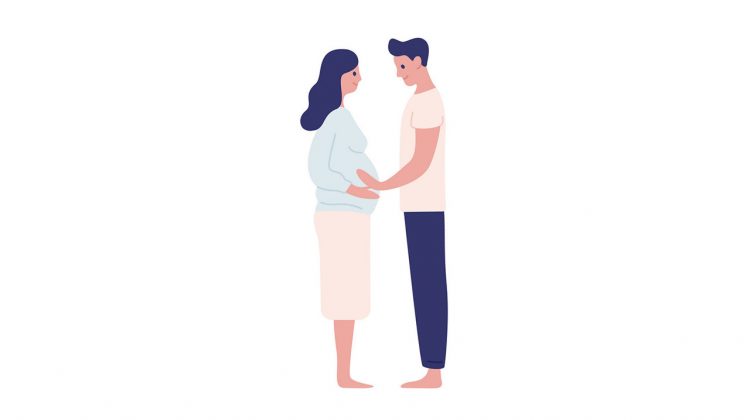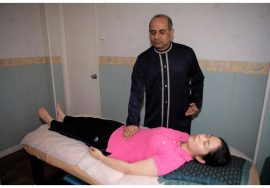
FERTILITY AND PROCREATION
EXPERIENCE FULFILLING RELATIONSHIPS THROUGH AYURVEDA, A PRE-REQUISITE FOR CONCEIVING HEALTHY, HAPPY CHILDREN
In this current series on the subject of Fertility & Procreation, the first and foremost topic is relationships.
Commonly it is believed that for conceiving a child only a man and a woman are involved, but Ayurveda says that since we human beings are social animals, we are part of the larger human society, and therefore we cannot ignore our interactions with other individuals in our family, our neighbourhood, our society and around the world.
Particularly in today’s world of advanced technology and globalisation, we are more connected globally and also greatly influenced by others from around the world, so it becomes imperative to take all these facts into account.
So, to start with, we need to understand ourselves and those around us, at the individual level. Ayurvedic wisdom talks about “Prakruti” (constitution/body type) of an individual, which offers a wider and deeper understanding regarding why we act and react/respond the way we do. Similarly, it helps us to understand more about those who are connected/related to us, and why they act and react/respond in a certain way.
When we have this knowledge of “Prakruti”, i.e. the Ayurvedic concept of an individual’s constitutional body type, we acquire a better understanding that each individual is different and unique. And due to these unique inherent differences – at the physical, mental, emotional, intellectual and spiritual levels – people around us – husbands, wives, siblings, parents, children, friends, neighbours, co-workers, etc. – are going to be different from us. This one basic fact of life, that all individuals are different, is one of the most complex things to understand and remember in relationships, even though it is such an obvious fact.
Our human nature is that we give more importance to our views and opinions than those of others. Therefore, we often try to impose our views, opinions and ideas on others, with the unrealistic expectation and hope that others will accept and follow/act the way we want them to. And when others do not do so, we feel very disappointed and then we either try to convince and change them or more often than not, we reject them.
The basic constitutional differences are bound to create some differences of opinion, disagreements and even conflicts. The disagreements and conflicts caused by the different constitutional nature and behaviour of individuals could be trivial, e.g. Pitta predominant individuals like cool temperature, Vata individuals may prefer a warm and slightly humid climate, whereas Kapha oriented individuals have an affinity for warm and dry weather.
Similarly, Pitta individuals generally have good appetite with strong digestive power, while the Vata individual’s appetite may fluctuate, and Kapha predominant individuals generally enjoy eating the most, in spite of having inactive/sluggish digestive systems.
Generally, we feel and expect that in order to maintain and improve the relationship, the other person should change. We feel that the other individual must follow what we say and do what we expect him/her to do. This is a serious mistake. This cannot work and it is also very unfair to the other person. This kind of mentality can only create more tension in the relationships and eventually give rise to unwanted resentment.
How do we resolve such apparently inevitable/unavoidable, and at the same time unpredictable, disagreements, arguments and conflicts?
Ayurveda advises that the most sensible and rational way to resolve such situations of disagreements, arguments and conflicts, which arise due to a general lack of understanding, is by learning about our personal “Prakruti”, i.e. mind-body constitution, as well as the unique constitution of others, who are a part of our lives.
This unique “Prakruti” or mind-body constitution, is the key factor which makes us (and others) who and what we are. This basic knowledge and awareness about one’s Prakruti can equip us with proper understanding on how to deal with our own high expectations and limitations in a realistic manner. At the same time, it enables us to recognise/acknowledge & accept the limitations and appreciate & admire the capabilities of others.
This kind of approach can help us tremendously in improving and maintaining our relationships by enhancing love, care, compassion, harmony and understanding. This knowledge/wisdom from Ayurveda doesn’t just give an abstract and theoretical concept that “people are different”, it actually provides a deeper understanding on how each of the 5 elements – ether, air, fire, water and earth – affect us and plays a significant role in making each one of us so uniquely different!
Let’s take the example of a man who is a Pitta oriented individual and his wife, who is a Vata oriented person.
The wife, if she knows her husband’s constitutional make up, would be sensitive enough (due to her Vata constitution), to realise what she should do when her husband returns home from work. A very simple thing to do is to greet him with a smile, with sweet words and offer him a glass of water. This simple gesture can have a very significant effect on his body and mind. This would relieve the husband’s physical fatigue and mental pressure brought on by the day’s hectic schedule. Ayurveda says, Pitta can be easily pacified by sweet and soothing words and with a glass of fresh water.
Similarly, if the man knows that his wife is a strong Vata person, he would be more aware (due to his strong Pitta nature) and understand what his wife anticipates & expects from him – Vata individuals usually like talking and sharing. He would initiate a conversation by asking her how her day was, what she did and also sharing with her about his activities during the day. This simple act would make his wife feel that she is important to him and would make her feel secure and loved.
Similarly, when a young girl, who has a strong Kapha constitution, returns home from school, a Vata predominant mother would be well advised to immediately receive her with a warm hug and advise her to relax first. Kapha people generally like warm hugs which makes them feel cared for and emotionally secure.
In my several years of practice as an Ayurveda consultant, by God’s grace, I have helped so many clients to improve their relationships with their spouses, parents, children, co-workers, friends and relatives.
Some of the married couples were at the verge of getting divorced, a few young children were suffering from ADHD, and in a few cases, the children were not getting along with their parents and with their siblings due to some personal emotional issues. In all such cases, when they were educated and made aware about their personal constitution and also the constitution of the other individuals they were having problems with, and when they followed the specific Ayurvedic diet and guidelines, their relationships improved by leaps and bounds and they have been living together much more harmoniously and happily since then. Personally, it is so satisfying for me when I see that I was able to help people live harmoniously by resolving their differences through Ayurvedic principles.
Now comes the million-dollar question – should a man and a woman have a similar constitution in order to have a happy married life? Ayurveda suggests quite the opposite!
Ayurveda says that if both the husband and wife have a similar constitution, it may cause more conflicts. And when they have different constitutions, it can actually complement/supplement each other and make them feel attracted and more loving towards each other. Just like in the case of magnets – two similar poles of two magnets repel each other, while the opposite poles attract each other.
In conclusion, it is so important for a person to know his/her own individual Prakruti/constitution, as well as the Prakruti/constitution of his/her spouse, siblings, children, etc. as this will go a very long way in helping the person to harmonise his/her relationships with other individuals, and thus make life more joyful and fulfilling. This in turn will help to uplift the couple emotionally and elevate their consciousness, especially during the act of procreation, which will directly impact the consciousness, self-esteem, sense of security and overall optimal/balanced development of the forthcoming child.
To book an online appointment at Ayuryoga, with our Ayurveda/Yoga Expert Mr. Vinod Sharma Hong Kong please click here.
DISCLAIMER : This information is intended for educational purposes only & does not constitute expert medical advice, nor is it meant to replace medical recommendations by a medical practitioner. Always consult a qualified Ayurveda Doctor/Health Professional/Yoga Guru for your specific medical needs before taking any herbal health supplements, and/or practicing Ayurveda & Yoga.












